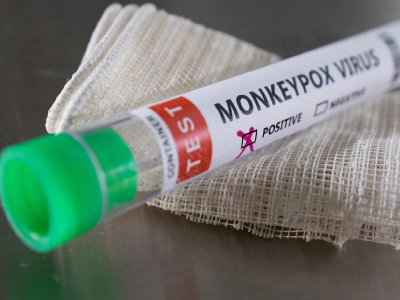Is monkeypox another threat to the world?
By Lokmat English Desk | Published: December 20, 2022 06:31 PM2022-12-20T18:31:10+5:302022-12-20T18:31:10+5:30

Ever since the first case of monkeypox was reported in London on May 12 last year, the disease has created quite a stir around the world. So far, around 20 thousand people have been infected with this disease worldwide. Now a new fear has researchers worried. In fact, epidemiologists

Historically, this virus has shaken the world several times in the form of dangerous epidemics in the last 3000 years. Now, researchers have found that the current virus has a different form than the previous monkeypox virus. This once again creates tension.

Worryingly, if this monkeypox virus multiplies or strains are created, the world will once again face a dangerous pandemic. This pandemic ravaged the world in the same way that smallpox and influenza viruses once did

According to the report of 'The Economic Times', after May 2022 monkeypox has spread at a high speed. So far, more than 20 thousand cases of infection with this disease have been detected in Europe, America, Oceania, Asia and Africa.

The report, published in the Biosafety and Health paper, says that further testing is currently needed. But in the current situation, the characteristics of the virus are changing rapidly. Also, people have been infected with it in the past few years.

An important point is that monkeypox has been found to be most common among homosexuals. After discussions with many researchers and experts, the World Health Organization has named the virus mpox, while in some countries it has been named MPXV.

According to the WHO, both names are in place for one year until monkeypox is phased out. Meanwhile, scientists from the University of Colorado have published a research in the journal Cell. It says that wild Africa primates animals.

Ebola-like symptoms appear after infection. This virus is also a danger to humans. This type of virus has been identified as dangerous for macaque monkeys. But, its effect on humans is yet to be investigated.






















